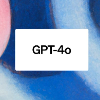Large language models show promise for autoformalization, the task of automatically translating natural language into formal languages. However, current autoformalization methods remain limited. The last reported state-of-the-art performance on the ProofNet formalization benchmark for the Lean proof assistant, achieved using Codex for Lean 3, only showed successful formalization of 16.1% of informal statements. Similarly, our evaluation of GPT-4o for Lean 4 only produces successful translations 34.9% of the time. Our analysis shows that the performance of these models is largely limited by their inability to generate formal statements that successfully type-check (i.e., are syntactically correct and consistent with types) - with a whopping 86.6% of GPT-4o errors starting from a type-check failure. In this work, we propose a method to fix this issue through decoding with type-check filtering, where we initially sample a diverse set of candidate formalizations for an informal statement, then use the Lean proof assistant to filter out candidates that do not type-check. Using GPT-4o as a base model, and combining our method with self-consistency, we obtain a +18.3% absolute increase in formalization accuracy, and achieve a new state-of-the-art of 53.2% on ProofNet with Lean 4.
翻译:暂无翻译



